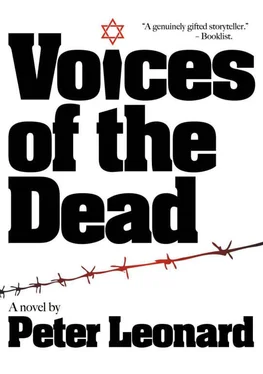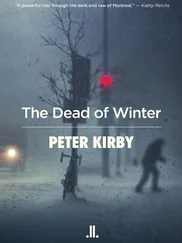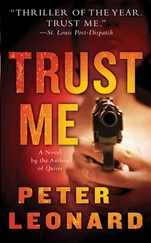Harry turned to him, put his index finger over his mouth and walked into Lisa’s office, aiming the Colt. It was in the same condition, no pictures on the walls, desktop clean, drawers empty. Not a piece of paper anywhere. Everything was gone.
He checked the other offices, checked closets and under desks, checked file cabinets. Everything had been cleaned out. Except for the sign on the outer door, it looked like the ZOB had never been there, never existed. Harry wondered how they did it, the manpower it must have taken to pack and move all that stuff so quickly. No sign of Leon and Irena either, but it was Saturday. Maybe they hadn’t come in to the office. He knew they lived together, had their address back at the hotel.
“Now what?” Cordell said.
Rausch had watched his men surprise the Jew, pick him up and drop him in the trunk of the stolen Mercedes, and slam the lid closed. Over in ten seconds. Exactly the way he had planned it. He had phoned Hess mid-morning, telling him the situation had been handled, taken care of. “Forget about Harry Levin. He is gone.”
“You are sure?” Hess said. “You saw the body?”
He was always skeptical unless he was involved. “I wouldn’t be calling you unless I was,” Rausch had said.
But now it was after 3:00, more than six hours since the Jew had been abducted and he had not heard from Trometer or any of them. He guessed they were in a ratskeller, getting drunk. He thought back, remembered exactly what he had told them. “Take the Jew in the woods, shoot him, bury him. Call me when you are finished.” What did they not understand? The outcome seemed certain, foregone. But then, they were not trained soldiers, and Levin was unpredictable.
Rausch recalled the scuffle at the restaurant in Washington DC. He had underestimated him and look what happened. He glanced in the rearview mirror, ran his fingertip over the scar on his cheek, the cut that required four stitches to close, remembered the unassuming Jew throwing him over the table, plates and glasses shattering, landing on the floor.
Rausch had never lost a fight in his life. Harry Levin from Detroit had made him look like an amateur, embarrassed him. He remembered Hess, angry, questioning him on the way back to the embassy.
“What happened?” Hess had said. Make a mistake and he would rub your face in it, make you feel like a fool. “Maybe I need a new bodyguard, Someone younger, more capable.”
“Maybe you do.” Rausch wasn’t going to play the game. He had just turned fifty-one. It sounded old, but he was in shape, ran a couple miles every day, lifted weights, boxed and spent time every week at the shooting range.
Then Hess smiled and patted his shoulder. “Arno, of course I am joking.”
Rausch wasn’t so sure.
The black man, Cordell Sims, was another story. He had jumped out a second-floor window into a trash bin and disappeared. What were the odds of doing that without sustaining injury? According to their contact at the Munich police, Sims had been a soldier stationed in Heidelberg before being dishonorably discharged for striking his platoon sergeant. The thought of it infuriated Rausch. Soldiers followed orders, you did what you were told. They should have put him in prison, or shot him. He would do it for them when the opportunity presented itself.
It was starting to get dark. The hotel lights popped on. Rausch sat in the Volkswagen, watching the activity in front of the hotel. Earlier he had gone to the lobby and used the house phone, asking for Herr Levin. Herr Levin did not answer, but it proved he was still registered.
Rausch had gone to the concierge’s desk and said, “A friend of mine, Herr Levin, is a guest in the hotel. I want to surprise him. Can you tell me his room number?”
The concierge said he was not permitted to give that information.
Rausch placed a fifty-Deutschmark note flat on the desk in front of him. The man stared at the money.
“You are a friend,” the concierge said, trying to rationalize taking it.
“ Ja .” Rausch forced a smile.
The concierge put his hand over the bill, scooped it up and put it in his pocket.
“Herr Levin is in Suite 7F.”
Rausch found it and knocked on the door, waited thirty seconds, picked the lock, went in and closed the door. He stood and listened and heard the muffled drone of an airplane somewhere overhead, the faint sound of a horn honking on the street below. He walked through the salon into the bedroom. The bed was made. There were receipts on the desk: a beer garden in Dachau, car rental in Munich, an airplane ticket, Pan Am flight, Munich to Detroit but no date. He opened the closet. There were shirts, trousers and a sport jacket on hangers, a pair of brown shoes on the floor. There was a shelf with a safe on it. He tried with all his strength to pull it free but he could not budge it.
There was a shaving kit in the washroom, a bottle of aspirin, comb, toothbrush, and toothpaste, eye drops. He walked back through the bedroom, sat on a couch in the salon and waited.
They were walking toward the Mercedes when Harry noticed a police car double-parked next to it, two cops looking in the windows. He grabbed Cordell’s biceps, steering him in another direction.
“Man, what you doing?” Then Cordell tuned in, saw what was happening. “Yeah, okay, I’m with you. Let’s go this way.”
They had walked a couple of blocks, hailed a cab and took it to Harry’s hotel. They entered from the rear side, boosted themselves up on the loading dock, walked through the stockroom, moving past floor-to-ceiling shelves. Saw a couple of maids filling their carts with room supplies. No one said anything or seemed to notice them.
He turned a light on when they walked in the suite, Cordell trailing behind, wide-eyed, looking around the living room. Harry pointed to a cabinet under the TV. “Help yourself to the mini-bar. I think it has Courvoisier and I know it’s got Coke.” He sat on the couch, watching Cordell open the cabinet, staring at all the bottles: soft drinks, water, juice, beer, and little airline bottles of whisky, vodka, gin, and assorted liqueurs. Cordell turned and looked at him.
“Want something, Harry?”
“Scotch and soda.”
“Dewar’s cool?”
Harry nodded. Cordell mixed the drinks in heavy lowball glasses, came over and handed him his Scotch and he took a sip. “Perfect.” He looked at his watch. 5:15. “I’ve got to make a few calls,” he said to Cordell. “Relax, turn on the TV. You can watch Hogan’s Heroes in German. I’ll be in the bedroom.”
He walked in with his drink, sat on the bed, put his glass on the end table, picked up the phone and called Colette, assumed she’d be back from Nuremberg by now, but got her answering machine. “It’s Harry. Meet me at Odeonsplatz at 6:00.” He’d tell her what happened later.
Next he dialed the operator. Although he had never talked to her he felt an obligation to call Joyce, tell her what had happened. He asked for a US operator and then a listing in Palm Beach, Florida for Joyce Cantor. There was a J. Cantor but the number was unlisted. Harry told the operator it was an emergency and she told him to call the police.
His second call was to Lisa’s partners, Irena and Leon. Harry tried the number, let it ring ten times and hung up. He went in the closet, opened the safe, picked up his passport, and slid it in his shirt pocket. He grabbed the extra ammunition, took out the Colt, opened the cylinder, ejected the spent shell casings and loaded three rounds in the empty chambers. He snapped the cylinder back in position, slid the gun in the waistband of his khakis behind his back. He went in the bathroom, threw the spent casings in the toilet and flushed it.
Читать дальше












